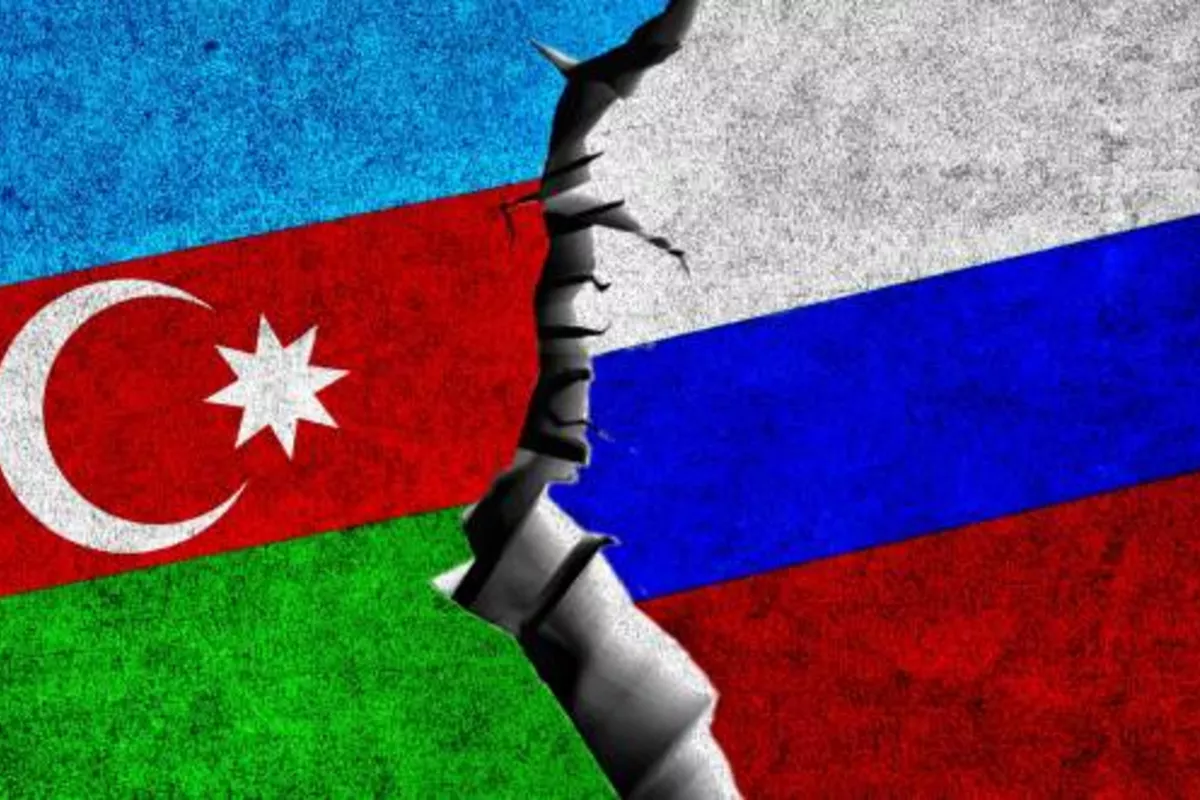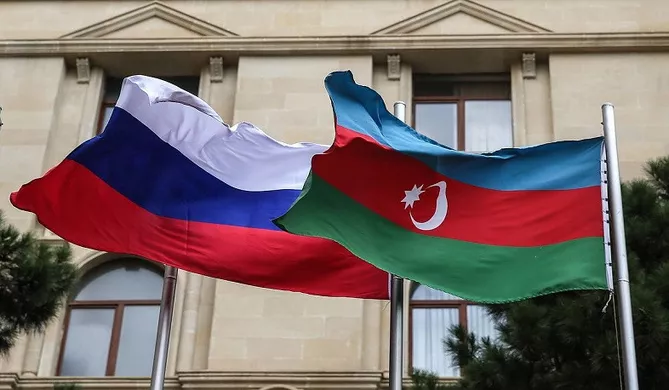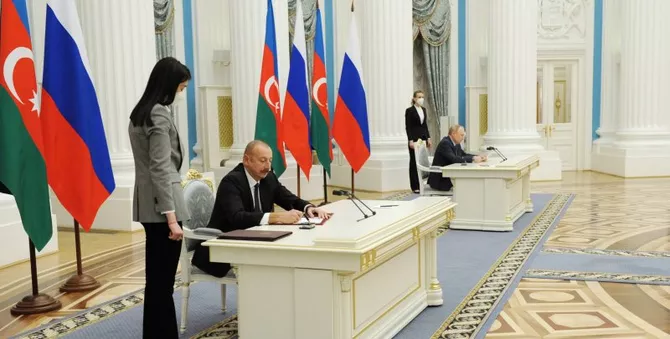
The recent anti-Azerbaijani incidents in Yekaterinburg have prompted serious questions: to what extent do these violent and unlawful actions - clearly in violation of international legal norms - align with the spirit and provisions of the Declaration on Allied Interaction signed between Azerbaijan and Russia in 2022?
In this context, it is essential to revisit the key provisions of that document. The Declaration underscores the deep-rooted historical friendship and good-neighborly relations between the two nations, as well as the close cultural and humanitarian ties between their peoples. It affirms the shared ambition to elevate bilateral relations to the level of allied cooperation - a goal that fully reflects the interests of both nations and contributes to regional and international security.
The Declaration also highlights the importance of deepening political, economic, defense, cultural, and humanitarian cooperation between Baku and Moscow. It confirms the unwavering commitment of both sides to the development of equal and respectful collaboration and expresses mutual interest in fostering integration processes within the Commonwealth of Independent States (CIS) space.
One of the key provisions explicitly obliges both parties to refrain from any actions that may, in the opinion of either Baku or Moscow, harm their strategic partnership and allied relations. Furthermore, the document expresses a mutual intention to actively support the preservation and development of the ethno-linguistic and cultural identity of national minorities residing within each other's territories. Accordingly, both Russia and Azerbaijan declared their readiness to promote the activities of diaspora organizations - within the framework of national legislation - that aim to strengthen bilateral economic, cultural, and humanitarian ties.

Symbolically, just a few weeks ago, on May 27, 2025, Russian President Vladimir Putin, in his official Independence Day message to Azerbaijani President Ilham Aliyev, reaffirmed the allied nature of the bilateral relationship. He expressed confidence that joint efforts would lead to further growth in constructive cooperation, which fully serves the interests of both peoples and contributes to strengthening security and stability in the South Caucasus and the Caspian region.
Against this backdrop, a straightforward and critical question must be asked: how do the recent anti-Azerbaijani events in Yekaterinburg correspond not only to the letter but also to the spirit of the Declaration on Allied Interaction? Do they in any way reflect the message of partnership and cooperation conveyed in President Putin’s congratulatory note to President Aliyev?

Photo credit: president.az
This contradiction becomes even more glaring when recalling the joint statements made during President Putin’s official visit to Azerbaijan in August of last year. On that occasion, President Aliyev clearly articulated the allied, friendly, and neighborly nature of relations between the two states. He emphasized that more than 300 schools in Azerbaijan offer instruction in Russian, with over 800,000 students studying Russian as a second language. Russian-language departments exist in 26 Azerbaijani universities, and branches of Moscow State University and Sechenov Medical University are operating successfully in the country.
In turn, President Putin emphasized Moscow’s strong interest in developing comprehensive and friendly ties with Azerbaijan, grounded in principles of equality, mutual respect, and close cultural and human bonds. He expressed gratitude to President Aliyev for his government’s continued support of the Russian language in Azerbaijan and praised the initiative to establish a joint Russian-Azerbaijani university in Baku.
These statements by the two leaders speak for themselves. Yet in light of what has recently occurred in Yekaterinburg, they take on a new urgency. To what extent can intimidation campaigns and punitive operations against Azerbaijani nationals be reconciled with the declared principles of partnership and alliance? Do such actions align with even a single provision of the Declaration or the messages voiced by the Russian president?
If no such alignment can be found, then we must ask: who within the Russian political establishment is attempting - whether clumsily or deliberately - to drive a wedge between Moscow and Baku?
Why have the instigators and backers of such actions faced no official condemnation or legal consequences? In fact, it seems that some of them may even enjoy tacit support from individual Russian lawmakers.
The contradiction becomes even more striking when considering that just days ago, Russian media outlets were united in praising Azerbaijan’s support for Russian citizens who found themselves in Iran during the Iran-Israel escalation. With the help of the Azerbaijani authorities, Russian nationals - including members of the Russian State Symphony Orchestra - were safely evacuated. In a gesture of gratitude, the musicians gave a free, impromptu concert in Baku, which was met with warmth and appreciation.
And yet, shortly thereafter, the same Russian media outlets have suddenly pivoted - now portraying Azerbaijanis as a threat, almost as if by command. What explains this abrupt and coordinated change in tone?
According to many analysts, these developments appear to be the result of deliberate actions by certain politically motivated forces in Russia who seek to manufacture tensions between Moscow and Baku. Whether driven by domestic political agendas or an effort to distract from other challenges, such moves clearly run counter to the strategic trajectory repeatedly affirmed by both governments.
The current situation calls for a clear and decisive response from Russia’s highest leadership. If allied relations with Azerbaijan are truly a strategic priority, as declared on multiple occasions, then actions that contradict those priorities cannot go unanswered.
Otherwise, there is a growing risk that destructive forces will succeed in imposing their own agenda, undermining the trust and cooperation that have taken decades to build between Azerbaijan and Russia.
Share on social media